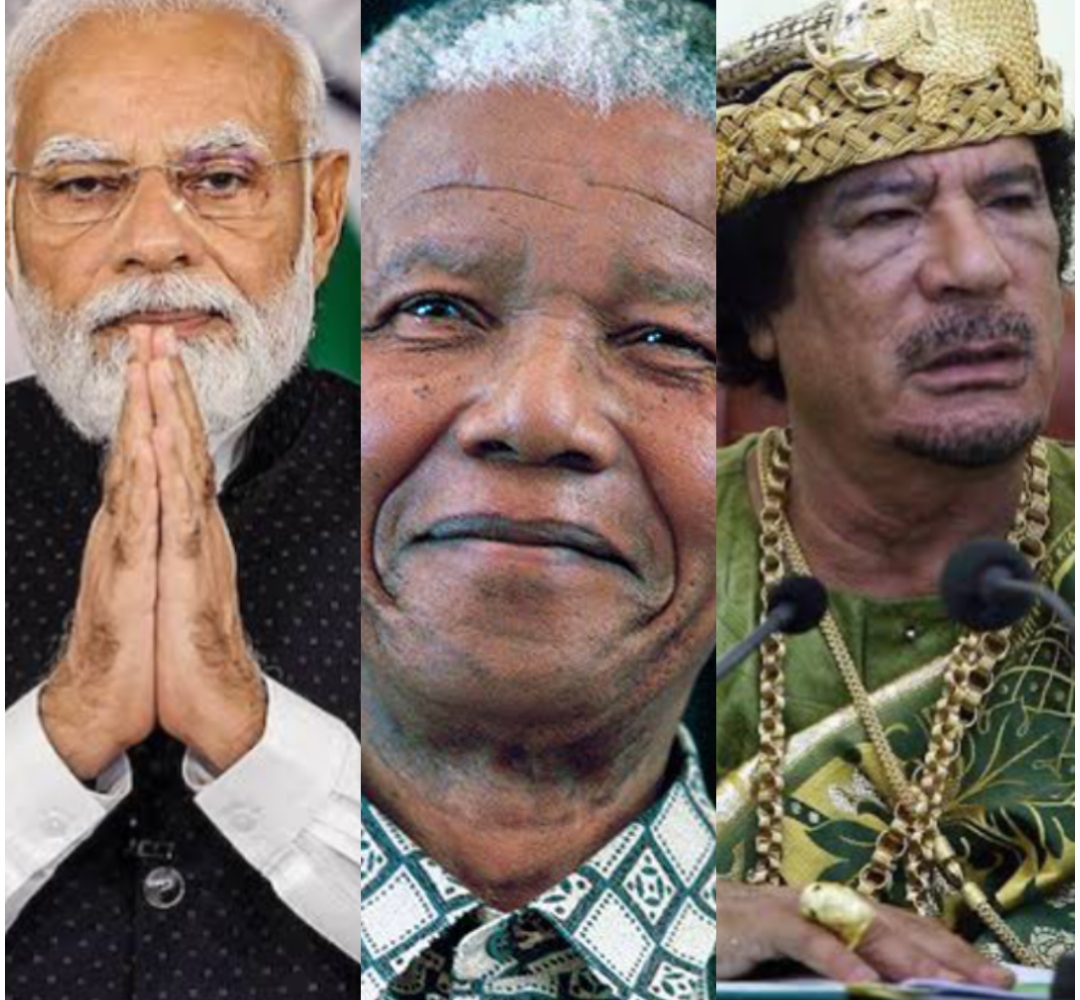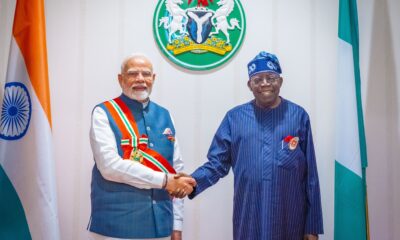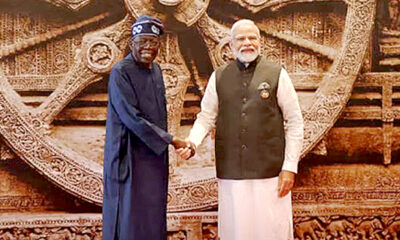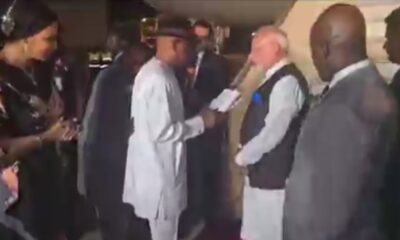The Nation
Wenger, Gaddafi, Mordi, other foreigners with Nigeria’s highest national honour (+Full List)

The Nigerian National Awards are a prestigious series of ceremonial honors given to individuals who have significantly contributed to the nation’s development.
Established under the National Honours Act No. 5 of 1964, these awards have been conferred yearly since October 1963 to recognize and celebrate exemplary service and nation-building efforts.
The awards are presented in various ranks and categories, reflecting their importance and the level of distinction they represent.
Remarkably, these national honors can also be conferred on foreign nationals who have made notable contributions to Nigeria or fostered strong bilateral relations.
The National Honours Awards Committee is responsible for overseeing the nomination and selection process. Nominees are chosen based on criteria that include contributions to nation-building, community development, humanitarian service, professional excellence, and the upholding of national integrity.
This structured recognition aims to inspire greater national pride and a commitment to service among Nigerians and their partners worldwide.
Here a full list of foreign nationals who have been honoured:
2. Nelson Mandela – GCFR
3. Muammar Muhammad Abu Minyar al-Gaddafi – GCFR
4. Susanne Wenger – OFR
5. India Prime Minister Narendra Modi – GCON
From the 8th to 10th of May, 1997, Muammar Gaddafi was on a visit to Nigeria and Niger Republic (he was awarded the GCFR on the night of Friday, 11th of May in Abuja by the Abacha government at a state banquet in Abuja, Abacha also honoured President Ibrahim Bare Mainnassara of Niger Republic, who had accompanied Gaddafi on his trip to Nigeria).
Susanne Wenger MFR, also known as Adunni Olorisha (4 July 1915 – 12 January 2009), was an Austrian-Nigerian artist and Yoruba priestess who expatriated to Nigeria. Her main focus was Yoruba culture and she was successful in building an artist cooperative in Osogbo.
On 12 January 2009, Wenger died at 93 in Osogbo.
The sculptures that were placed in Oshun’s grove from the late 1950s onwards, sculptures that were created by her followers and local artists, have belonged to the UNESCO World Heritage Site since 2005.
In 2005, the Nigerian government admitted her as a member of the Order of the Federal Republic.
For her efforts on behalf of the Yoruba, she was given a chieftaincy title of the Osogbo community by the king, or Ataoja, of Oshogbo.
Late Nelson Mandela, visited Nigeria in 1990 to thank the country for its support during his incarceration. A state reception was organised in his honour at State House Marina and he was awarded the highest Nigerian national honour of Grand Commander of the Federal Republic by President Ibrahim Babangida.
Queen Elizabeth was awarded GCON in 1969. Then she was also awarded the GCFR in 1989.
The national award – the Grand Commander of the Order of the Niger – was conferred on Prime Minister Narendra Modi for his statesmanship and stellar contribution to fostering bilateral ties.
This was the 17th such international award conferred on Modi by a country.
In his remarks, Modi said the relations between India and Nigeria are based on mutual cooperation, goodwill and respect.
The highest honours in the country include the Grand Commander of the Federal Republic, often reserved for past and present Presidents and Heads of State; Commander of the Order of the Federal Republic bestowed on Vice-Presidents, Senate Presidents and Chief Justices of Nigeria; and Officer of the Order of the Federal Republic; and the Member of the Order of the Federal Republic, often granted to Nigerians who have made great impact in their industry, communities and the nation.
The second set of honours is the Grand Commander of the Order of the Niger, the Commander of the Order of Niger, Officer of the Order of Niger, and Member of the Order of Niger. Some of the privileges attached to the recipients of the honours are a letter, a medal and a certificate signed by the President. Beneficiaries also enjoy respectable treatment in public spaces.
Recipients of the high orders of the Federal Republic, especially the GCON, may be issued with a diplomatic passport, and when they die, a condolence message from the President of the country.

































